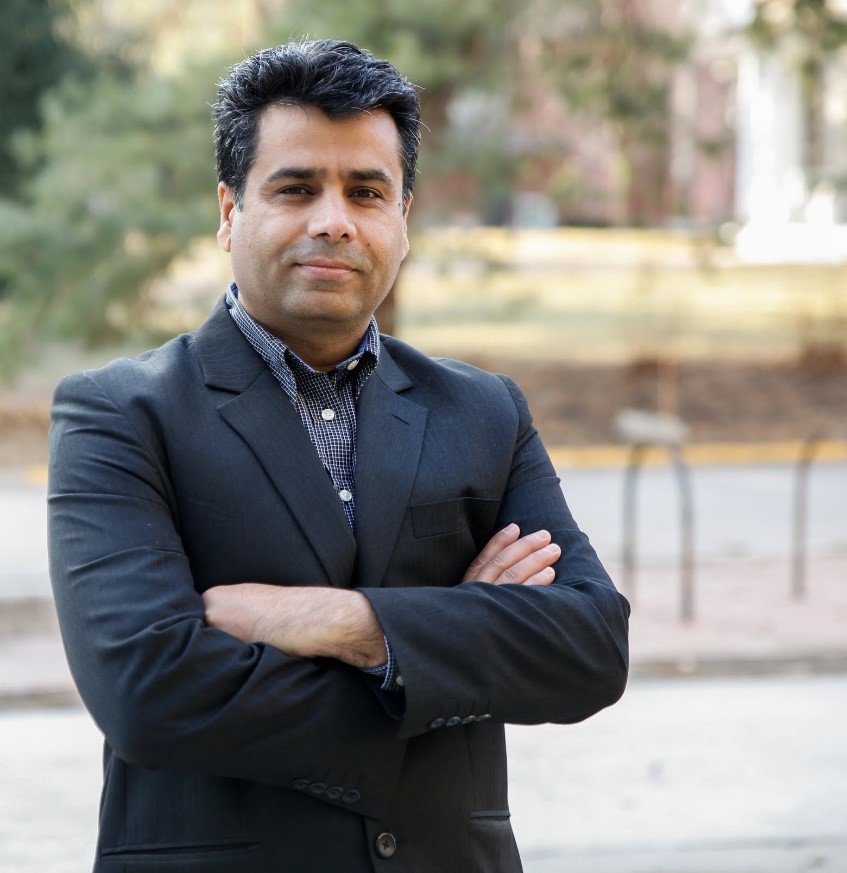LSU Doctoral Candidate Named Inaugural Winner of the William E. Doll, Jr., Superior Graduate Student Scholarship
February 14, 2022
BATON ROUGE, LA - Sher Ahmed, a fourth-year doctoral candidate in Curriculum & Instruction and the president of the Curriculum Theory Graduate Student Collaborative, has been named the inaugural winner of the newly established, annually awarded William E. Doll, Jr., Superior Graduate Student Scholarship at Louisiana State University.
The William E. Doll, Jr., Superior Graduate Student Scholarship was established in
honor of the esteemed LSU scholar, beloved professor, and faithful friend, the late
Dr. William Elder Doll, Junior. At his core, Dr. Bill Doll was a lifelong learner and educator whose passion for
play and sense of possibility inspired those who knew him. Bill attended Cornell University
where he studied philosophy and history, graduating with a BA degree in 1953. His
Master’s in philosophy was conferred by Boston University in 1960, and his Ph.D. in
education by Johns Hopkins University in 1972. Bill began teaching at LSU in 1989,
designed the Holmes Program, and served as founding co-director of the internationally
recognized Curriculum Theory Project (CTP) (established in 1995) which he led until
he left LSU in 2008. His contributions to LSU were so vast and innumerable that a
conference room and a fellowship were named in his honor following his retirement
from the university. The William E. Doll, Jr., Archive – preserving his papers and
correspondence – is also housed in the LSU Hill Memorial Library.
This scholarship was established to provide support to graduate students who are pursuing
a Doctor of Philosophy (Ph.D.) in Curriculum & Instruction with a specialization in
Curriculum Theory in the School of Education. This degree is designed to support advanced
study in curriculum theory, an interdisciplinary field whose primary goals are to
research the role education plays in a democratic society both nationally and internationally.
Curriculum Theory aspires to understand educational practices within broad social
and cultural frameworks, focusing on what counts as knowledge, and what knowledge
is most valued, by whom, at what time, and for what purpose. Students gain a theoretical
and practical understanding of curriculum history, theories of curriculum development,
and philosophies of pedagogy as they relate to an increasingly diverse and technological
world.
Sher’s current research interest lies in narratives that construct identities on the
national level, which inspired him to select his doctoral research project to study
national identity construction through social studies textbooks in Balochistan, Pakistan.
Currently, he is investigating social studies/history textbooks taught in public schools
in the province of Balochistan, Pakistan, to uncover how such textbook narratives
are creating national identity. This investigation emerged from the sense of his own
identity as fractured and hybrid: his Pakistani identity, built on the dominant narratives
in Pakistan, and his own ethnic identity, disturbingly absent from the national discourse.
He questioned the violent suppression of Baloch political and social rights by the
Pakistani state while he felt the need to defend Pakistan as a Pakistani in the US,
even as he disagreed with what Pakistan was doing relative to ethnic and religious
minorities. This ‘in-betweenness’ of his ‘hybrid identity’ fractures his association
with respect to the Pakistani nation and nationalism and it constantly fluctuates
and is always in flux. As there has been some discourse around inclusion of ethnic
and religious diversity in the curriculum in recent years, Sher is trying to figure
out how social studies textbooks presently lay the foundations of ‘hybrid’ identities
for the young in Balochistan province.
In response to receipt of this scholarship, Sher expressed his immense gratitude to
the Curriculum Theory Project and the School of Education for such financial support as he completes his dissertation in his last year of education.
This funding will particularly assist him in attending educational conferences and
joining other academic activities related to his work in the future.